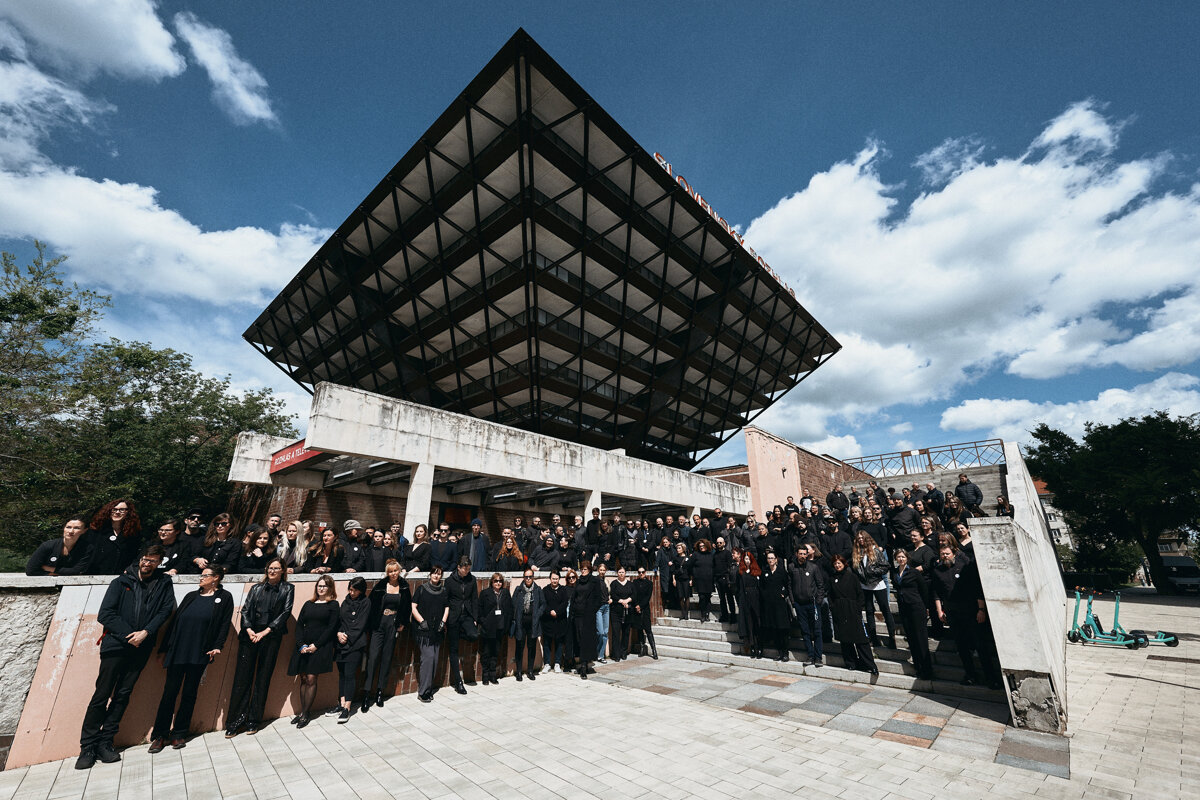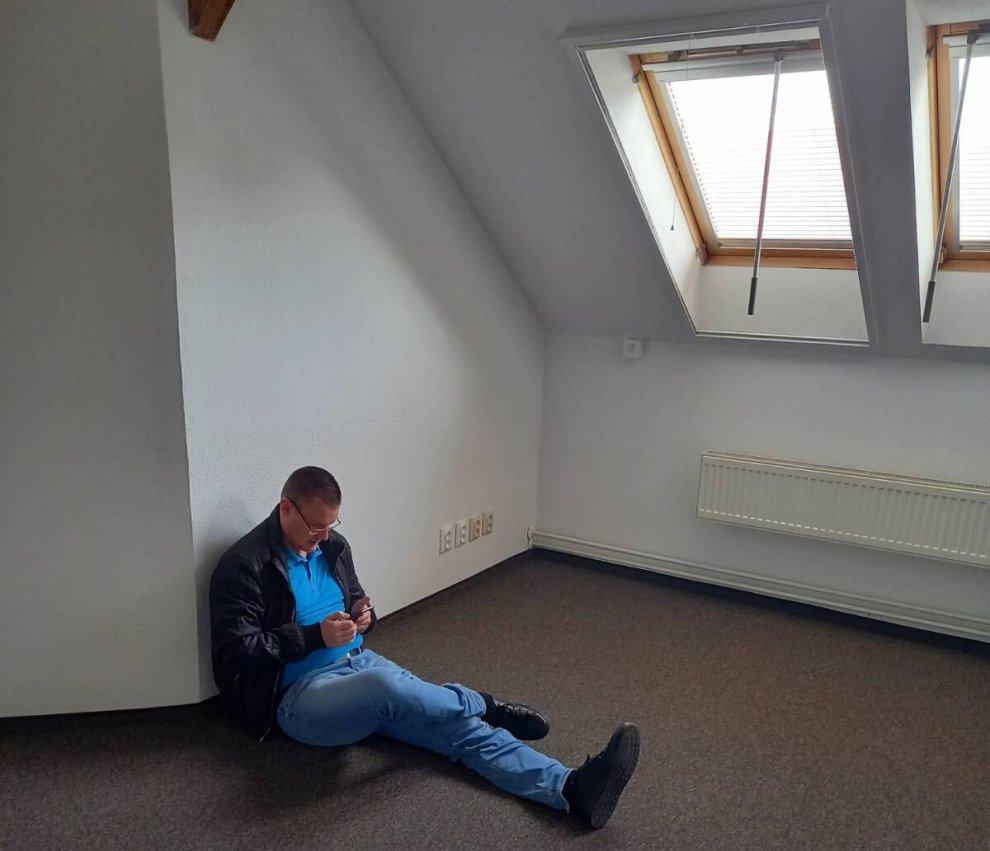Slovak anti-NGO bill passed the first reading (Zeitgeist 3.)
The bill on foreign-sponsored organisations passed its first reading, the politician and controversial figure of the right-wing scene Štefan Harabin was nominated as a candidate for the Council of the Judiciary and Justice Minister Susko ordered lustration in the supreme courts. These are just the highlights of the attacks on the rule of law in Slovakia. Zeitgeist No.3 summarizes the most important news from the rule of law in Slovakia over the past month.
The bill on organizations with foreign support passed the first reading
A proposal for crucial amendments to the Non-Profit Organizations Act, Foundations Act, and Act on non-investment funds has been approved by the parliament and sent to the second reading.
The bill lays down the option to propose the cancellation of a non-profit organization, foundation, or non-investment fund with additional reasons. In case of civic associations there will a possibility of dissolving the association directly by the Ministry of the Interior in the case of the association’s failure to save the annual report in the register for financial statements or fulfilling newly imposed obligations, for instance to disclose all (not only foreign) organizations’ donors and contributors. More you can read in our analysis of the legislation in English (PDF).
The bill introduces a new label, ‘organization with foreign support,’ which applies to all types of NGOs, including foundations, non-profit organizations, non-investment funds, civil associations, and organizations with an international funding. These NGOs will be required to use this label ‘for all actions within the association’s activity’ if they receive financial or other material payment exceeding 5,000 EUR from a foreign individual or legal person or a domestic entity with the label’ organization with foreign support’. The registration authority will add this label to the organization’s name, and the organization will be obliged to use this name in all its communications under a threat of fines or abolishment.
The bill establishes many controversies. It conflicts with EU law, as the Court of Justice of the European Union has previously ruled on labelling organizations as ‘foreign-supported organizations.‘ This ruling, which assessed the compliance of the Hungarian Law on the Transparency of Organizations that are recipients of foreign aid (the so-called ‘Hungarian Law on NGOs’) with EU law and the Charter of Fundamental Rights of the EU, raises questions about the bill’s alignment with the principles of freedom of association.
Undermining the independence of judges of the Supreme Court
Over the past five months, the attacks on judicial independence in Slovakia have not just escalated, but reached a critical point. The Minister of the Interior, Šutaj-Eštok, issued a direct threat of disciplinary proceedings against a judge of the Bratislava Municipal Court. Prime Minister Robert Fico accused the Slovak Constitutional Court of coordinating its decisions with the presidential palace. Fico even went as far as threatening the President of the Constitutional Court with a dismissal. These actions were not just a clear threat, but an alarming one, to the independence of the judiciary. Lately, Fico addressed Supreme Court judge Juraj Kliment: „Being Mr. Kliment, I would pack today. But he probably wants to go through all the legal procedures our legal system requires.” This represents a serious allegation and a harsh attack on the judiciary by the executive power, undermining its independence in a significant way.
A bill on the public broadcaster (RTVS) is in the National Council
The Slovak Ministry of Culture has unveiled how the Fico IV administration plans to obtain more control over the RTVS public broadcaster. The ministry introduces “new elements” to the election, along with the removal of the RTVS general director and the selection of RTVS board members. The public resistance and the disapproval of the RTVS employees are growing. The government’s proposal conflicts with the newly adopted European Act on Media Freedom. It is supposed to oblige the EU member states to ensure the independent functioning of public media. The Slovak government’s proposal goes in precisely the opposite direction. The amendment may also conflict with freedom of expression and the right to information guaranteed by the EU Charter of Fundamental Rights.

Dressed in black, RTVS employees are protesting against the government’s decision to abolish RTVS. Photo: Miloš Mráz, RTVS
Dismissal of the Chairman of the Council for the Judiciary
Seven members of the Council for the Judiciary, elected by judges, initiated a motion to dismiss the Chairman of the Council, Ján Mazák. An unexpected agreement occurred when these seven members were joined by the three members elected by the Slovak government and, with ten votes, successfully removed Ján Mazák from the Chair. The somewhat embarrassing procedure started with the motion submitted on Friday, requiring the vote on Tuesday next week. When the chairman Mazák and several members of the Council refused to vote since there was no time for defense and discussion, the majority decided to remove the chairman. This majority accused the chairman Mazák of surveillance of the judges. The dismissal process of the Chairman of the Judicial Council was dishonorable and had nothing to do with a fair and high-quality discussion of the constitutional body of judicial legitimacy.
Dismissal of the members of the Judicial Council elected by the National Council
After the dismissal of the Chairman of the Council for the Judiciary, Ján Mazák, the majority of parliament members immediately filed a motion to remove two members elected by the parliament. These two members – former chairman Ján Mazák and Andrej Majerník, were elected by the parliament in 2020, and their term would end in 2025. The arguments of the parliamentary majority were rather arbitrary and vague. The majority argued with the decision of the Constitutional Court (PL. US 8/2022 and PL.US 12/2022), which does not mention the arguments that the majority claimed.
Moreover, the main argument for the dismissal was that these members “did not protect judicial independence” during the adoption of the judicial reform in 2020. However, the reform was received prevalently well by the European Commission and legal experts, and the step criticized by the Commission and CCJE was particularly the possibility of the premature dismissal of the Council for the Judiciary. Based on the current legislation, premature removal of the Council for the Judiciary members is legally possible. Still, the practice is highly criticized by the European Commission, the professional organization of judges CCJE, and the Slovak Constitutional Court. Despite this controversy, Fico’s coalition, having a majority in the parliament, has done it repeatedly. For instance, the replacement of three members of the Judicial Council elected by the government happened even before the vote of confidence in the parliament in September 2023.
Štefan Harabin as a candidate for the Council for the Judiciary
The ruling coalition party, nationalist SNS, announced that they will propose Štefan Harabin as their candidate for an empty seat in the Council for the Judiciary of the Slovak Republic. Harabin is a controversial figure who recently represented the alt-right spectrum in the presidential election in which he received almost 12% of votes.
He is remembered as an infamous Minister of Justice/Chief Justice of the Supreme Court/Chairman of the Council for the Judiciary. The reasons for this reputation were interference in the independence of the judges through retaliatory disciplinary proceedings, favoring obedient judges with extraordinary remuneration, and deterioration of transparency of the judiciary and the Council for the judiciary.
The Minister of Interior removed plenipotentiary and significant civil society representatives from the Council for the NGOs.
The Minister of the Interior of the Slovak Republic, Matúš Šutaj Eštok, dismissed five members of the Government Council for Non-Governmental Non-Profit Organizations without providing a reason. These experts had the status of “personality of the civil sector” in this government advisory body. This step happened after the removal without giving a reasoning of the Plenipotentiary for the Development of the Civil Society Filip Vagač, in March 2024.
Despite the tradition of the dialogue between the government and civil society, Minister Šutaj-Eštok appointed a new plenipotentiary, Simona Zacharová, without any discussion with the representatives of the Chamber of the NGOs. Fico administration does not approve of open governance. Hence, it aims to eliminate citizen participation at all levels, limit financial resources for the non-governmental sector, and indiscriminately and systematically attack civil society.
Prosecutors from the former Special Prosecutor’s Office neutralized
The Special Prosecutor‘s Office (SPO) ceased to exist on March 20th, 2024. The SPO handled cases connected to corruption and serious crimes, including misusing EU funds. Investigations by the SPO have led to numerous convictions in high-profile corruption cases, many of which were linked to Fico’s ruling SMER-SSD. General Prosecutor Maroš Žilinka promised the public that he would keep the pending cases to prosecutors from former SPO.
However, the prosecutors from the former SPO were transferred to other than criminal agendas, which are not concerned with their previous focus. His subordinates recently criticized General Prosecutor Žilinka for failure to handle the transfer of the files of the SPO that were stored in the basement of the General Prosecutor’s Office building. The most severe problem with the SPO abolishment process described by the prosecutors in their letter is that, due to the enormous chaos, prosecutors without files missed several deadlines in court cases, which cannot be corrected anymore. Outside delays and failures in the investigation caused by the actions of the General Prosecutor, the long-term investment into the training of the prosecutors focused on economic crime and corruption will vanish.
Prosecutors from the former Special Prosecutor’s Office neutralized
The Special Prosecutor‘s Office (SPO) ceased to exist on March 20th, 2024. The SPO handled cases connected to corruption and serious crimes, including misusing EU funds. Investigations by the SPO have led to numerous convictions in high-profile corruption cases, many of which were linked to Fico’s ruling SMER-SD. General Prosecutor Maroš Žilinka promised the public that he would keep the pending cases to prosecutors from former SPO.
However, the prosecutors from the former SPO were transferred to other than criminal agendas, which are not concerned with their previous focus. His subordinates recently criticized General Prosecutor Žilinka for failure to handle the transfer of the files of the SPO that were stored in the basement of the General Prosecutor’s Office building. The most severe problem with the SPO abolishment process described by the prosecutors in their letter is that, due to the enormous chaos, prosecutors without files missed several deadlines in court cases, which cannot be corrected anymore. Outside delays and failures in the investigation caused by the actions of the General Prosecutor, the long-term investment into the training of the prosecutors focused on economic crime and corruption will vanish.

“I don’t even have just a chair to sit on. Actually, no furniture in the office, just a carpet,” prosecutor Michal Šúrek said after being reassigned from the Office of the Special Prosecutor’s Office to the Prosecutor General’s Office. Photo: Dennik N
Justice Minister Susko ordered lustration at the apex courts
The Minister of Justice instructed to conduct an inspection at the Supreme Court and the Specialized Criminal Court to examine the random selection of judges in the allocation of individual cases. While the Supreme Court refused to make the entire database of files available to the Ministry of Justice, the Specialized Criminal Court handed over a copy of the system from 2005.
Chief Justice of the Supreme Court Ján Šikuta explained that the inspection from the Ministry of Justice required all the files from 2001. When they found out how many terabytes of data it includes, the inspection changed the requirement for all files since 2019. Such interference from executive power to judicial power is unprecedented and is one of the strongest attacks on the judiciary.
A victory of the candidate of the ruling coalition in the presidential election
At the time of the election, Peter Pellegrini’s presidential campaign— Pellegrini being the Speaker of the National Council—was surrounded by suspicions of crossing the financial limit, disinformation, and dirty attacks on Ivan Korčok, the civic candidate for president.
After the first round of the Slovak presidential election, which Ivan Korčok won, Peter Pellegrini, who came second in the race, said that he wouldn’t lead an aggressive campaign and attack his rival. However, Pellegrini’s false narrative of Korčok sending Slovak troops to Ukraine captured the campaign before the second round.
Erik Kaliňák announcing the lustration of the journalists
Erik Kaliňák, an advisor of Prime Minister Robert Fico, failed to respond to the questions on the issue of giving an interview to the disinformation channel and announced that he had already instructed the deputy chief of the Slovak Secret Service to screen personal bank accounts of the Slovak journalists.
After a considerable critique, Kaliňák explained that this statement was a joke. However, based on the experience of the lustration of journalists by convicted criminals in the past, this unsuccessful attempt at a joke cuts deeper than usual.
About Zeitgeist
Zeitgeist is the English newsletter of VIA IURIS, in which we try to capture the zeitgeist of the political situation in Slovakia, which has changed dramatically after the parliamentary elections in September 2023.
The 4th government of Prime Minister Robert Fico was formed by a coalition of two, as they call themselves, social democratic parties – SMER-SD, HLAS-SD and the nationalist party SNS. Since the coalition was formed, institutions guaranteeing the rule of law and public control, including Slovak civil society, have been under constant attack.
Previous issues of our English newsletter can be found here
Topics: #RuleOfLaw #legislation #media #CivilSociety

